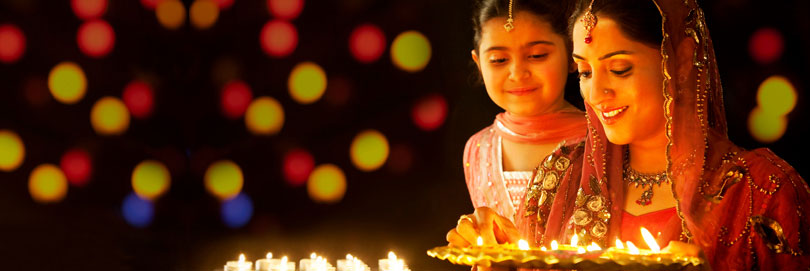
Diwali signifies Harvest Festival. As it occurs at the end of a cropping season and has along with the above customs, a few others that reinforce the hypothesis of its having originated as a harvest festival. Every harvest normally spelt prosperity. The celebration was first started in India by farmers after they reaped their harvests. They celebrated with joy and offered praises to God for granting them a good crop.
On the second day of Deepavali, a ritual that is strongly suggestive of the origin of Deepavali as an harvest festival is performed. Worship of the Goddess of Wealth, Laxmi and performance of Aarti are a part of the harvest festival. On this day delicacies are prepared from pounded semi-cooked rice called Poha or Pauva. This rice is taken from the fresh harvest available at that time. This custom is prevalent both in rural and urban areas especially in Western India.
In rural areas, Diwali signifies only this aspect. The reason being the fact that Diwali which is celebrated sometime in October/November co-incides with the end of a harvesting season, known as the Kharif season when the fresh crop of rice is available. Therefore, Diwali is also considered by many rural hindus to be the harvest festival when farmers offer prayers, and express their gratitude to the Almighty for the bounty they received from him.
Source: httpss://www.diwalifestival.org/diwali-as-harvest-festival.html






























